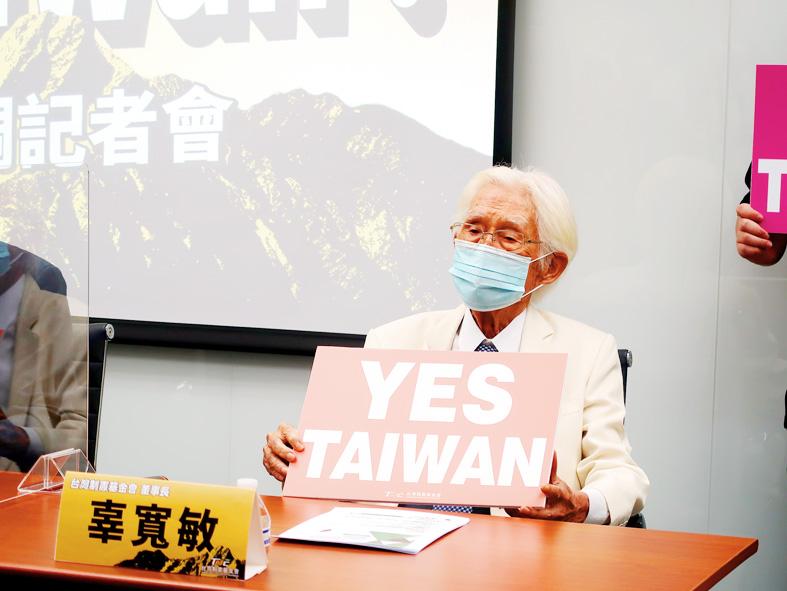Nearly 90 percent of the public identify themselves as Taiwanese and about two-thirds said they are willing to fight for the country in case of war, a survey released yesterday by the Taiwan New Constitution Foundation showed.
The question about national identity showed that 89.9 percent identify themselves as Taiwanese and 4.6 percent as Chinese, while 1 percent consider themselves to be both, the poll showed.
Given more than one choice, 67.9 percent of respondents said they are Taiwanese, 1.8 percent said they are Chinese and 27.9 percent said they are both, the survey showed.
The survey also showed that 36 percent of respondents said they would absolutely go to war to defend Taiwan, while 28.3 percent said they probably would, 12.7 percent said they would not and 7.4 percent had no opinion.
Asked about Taiwan’s future, 50.1 percent of the public support maintaining the “status quo,” 38.9 percent back independence and 4.7 percent favor joining China.
Asked about their perceptions about other countries, Japan received the most positive view with 83.9 percent, followed by the US with 75.6 percent.
In contrast, the majority, or 70.3 percent, have a negative view of China, while only 16.4 percent have a positive view of Taiwan’s neighbor across the Strait.
Asked about the recently concluded Tokyo Olympics, 65.1 percent of respondents said they referred to the country’s Olympic delegation as “Taiwan” in conversation, while 27.6 percent said they called it “Chinese Taipei” or “Zhonghua” (中華), the poll showed.
More than 82 percent said they regretted that the country took part in the Tokyo Olympics under the name “Chinese Taipei,” and that the national flag and anthem could not be displayed during the Games, it said.
Foundation chairman and founder Koo Kwang-ming (辜寬敏), 94, said he has supported Taiwan’s normalization as a country for five decades and hoped to achieve that goal in his remaining years.
Taiwan can only transition to a normal country by becoming the “Republic of Taiwan” — not by keeping the name Republic of China (ROC), he said, adding that the poll proves that normalization is the public’s common aspiration.
President Tsai Ing-wen (蔡英文) must decide if she agrees with their view that her administration exists under the ROC’s Constitutional framework and the Constitution must therefore be changed, he said.
Asked about party affiliation, 31.1 percent of respondents support the Democratic Progressive Party, 12.4 percent back the Chinese Nationalist Party (KMT) and 11.4 percent favor the Taiwan People’s Party, foundation deputy director Lin Yi-cheng (林宜正) said, adding that the New Power Party and Taiwan Statebuilding Party each had 3.8 percent.
The future for defining Taiwan’s status in the world and the rectification of its name rest on developing the Taiwanese national identity, he said.
Foundation deputy director Sung Cheng-en (宋承恩) said the percentage of people who identified as Taiwanese in the survey marked a substantial increase from 83 percent last year.
The poll, conducted from Tuesday to Friday last week, collected 1,071 valid samples and had a margin of error of 3 percentage points.
Source: Taipei Times - 2021/08/11





















